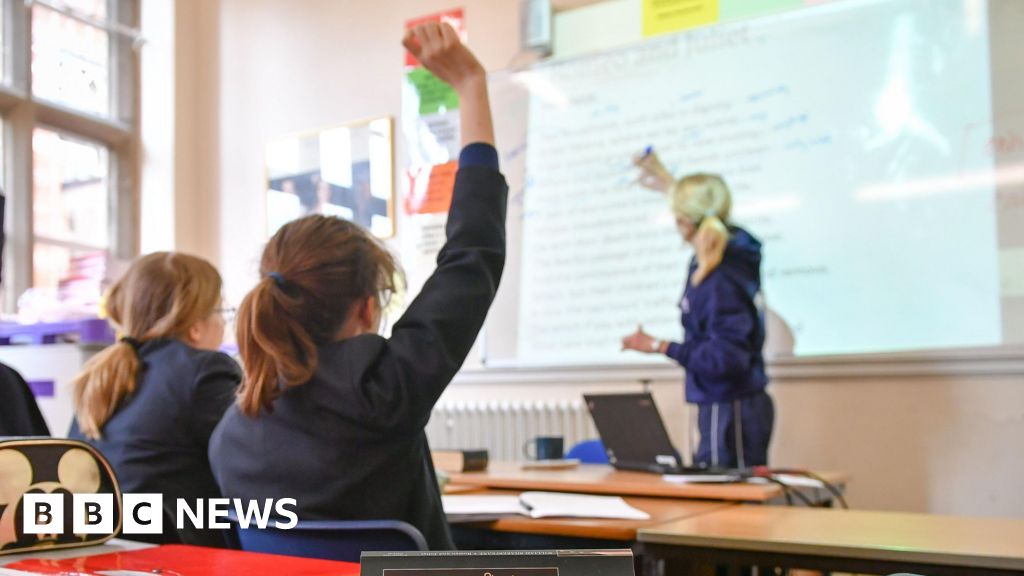- Technology
Sign up to the Working It newsletter for everything you need to get ahead at work
时间:2010-12-5 17:23:32 作者:Tennis 来源:Fashion 查看: 评论:0内容摘要:For Jade Bradford, from Hertfordshire, it was a life-long dream to attend Hay Festival.For Jade Bradford, from Hertfordshire, it was a life-long dream to attend Hay Festival.
She says interacting with chatbots on character.ai got her through a really dark period, as they gave her coping strategies and were available for 24 hours a day."I'm not from an openly emotional family - if you had a problem, you just got on with it.

"The fact that this is not a real person is so much easier to handle."People around the world have shared their private thoughts and experiences with AI chatbots, even though they are widely acknowledged as inferior to seeking professional advice. Character.ai itself tells its users: "This is an AI chatbot and not a real person. Treat everything it says as fiction. What is said should not be relied upon as fact or advice."But in extreme examples chatbots have been accused of giving harmful advice.

Character.ai is currently the subject of legal action from a mother whose 14-year-old son took his own life after reportedly becoming obsessed with one of its AI characters. According to transcripts of their chats in court filings he discussed ending his life with the chatbot. In a final conversation he told the chatbot he was "coming home" - and it allegedly encouraged him to do so "as soon as possible".Character.ai has denied the suit's allegations.

And in 2023, the National Eating Disorder Association replaced its live helpline with a chatbot, but later had to suspend it over claims the bot was recommending calorie restriction.
In April 2024 alone, nearly 426,000 mental health referrals were made in England - a rise of 40% in five years. An estimated one million people are also waiting to access mental health services, and private therapy can be prohibitively expensive (costs vary greatly, but the British Association for Counselling and Psychotherapy reports on average people spend £40 to £50 an hour).Sir Nick Clegg, former president of global affairs at Meta, is among those broadly supportive of the bill, arguing that asking permission from all copyright holders would "kill the AI industry in this country".
Those against include Baroness Beeban Kidron, a crossbench peer and former film director, best known for making films such as Bridget Jones: The Edge of Reason.She says ministers would be "knowingly throwing UK designers, artists, authors, musicians, media and nascent AI companies under the bus" if they don't move to protect their output from what she describes as "state sanctioned theft" from a UK industry worth £124bn.
which includes Technology Secretary Peter Kyle giving a report to the House of Commons about the impact of the new law on the creative industries, three months after it comes into force, if it doesn't change.Mr Kyle also appears to have changed his views about UK copyright law.
- 最近更新
- 2025-07-07 10:00:43Iranian dissident Jafar Panahi wins top prize at Cannes Film Festival
- 2025-07-07 10:00:43Mapping Israel’s military campaign in the occupied West Bank
- 2025-07-07 10:00:43From students to tech: How US-China ties are sliding despite tariff truce
- 2025-07-07 10:00:43Is there life on another planet? Scientists find the strongest evidence yet
- 2025-07-07 10:00:43Enlightened Americans should stay and fight, not leave
- 2025-07-07 10:00:43Which countries trade the most with Israel and what do they buy and sell?
- 2025-07-07 10:00:43Boeing reaches deal with US DOJ to avoid prosecution over 737 Max crashes
- 2025-07-07 10:00:43Ship carrying oil and hazardous cargo sinks off Kerala coast
- 热门排行
- 2025-07-07 10:00:43"choosing my own adventure."
- 2025-07-07 10:00:43US judge temporarily bars Trump admin from ending NYC congestion pricing
- 2025-07-07 10:00:43according to the Senior Citizens League
- 2025-07-07 10:00:43Which countries trade the most with Israel and what do they buy and sell?
- 2025-07-07 10:00:434 Investment-Worthy Skincare Finds From Sephora
- 2025-07-07 10:00:43Sudan says cholera outbreak killed 172 people in a week
- 2025-07-07 10:00:43Israel kills 29 Palestinians as Hamas says ready for Gaza ceasefire talks
- 2025-07-07 10:00:43Five Mexican musicians abducted, murdered by alleged drug cartel
- 友情链接
- Subsidies for locals and tax-free salaries have left region fiscally vulnerable Monthly PMI data strengthens case for Bank of England rate cut in August PM Shigeru Ishiba’s LDP defeated ahead of upper house vote next month Self-driving technology on which Elon Musk has staked future of his company debuts in Texas Japan’s ruling party suffers record low result in Tokyo poll US bombs nuclear sites in Iran US and Israeli attacks hit key nuclear sites but questions remain over stash of enriched material Governments aren’t hearing the calls for aid The raids attacked research and centrifuge arrays that Tehran has built up over decades Travel outside your political tribe? Many are saying no thanks Real success for Trump in Iran will require de-escalation Advent agrees £4.4bn takeover of London-listed Spectris What happens to Nato if the US steps back? Campaigners launch legal challenge to Thames Water reservoir plan Trump tracker: the latest data on US tariffs, trade and economy China needs to take a long-term view and let the renminbi rise End Nato secrecy to convince voters on defence spending, says Lithuania Sign up for Swamp Notes, our newsletter on the intersection of money and power in US politics Spain secures opt-out from new Nato spending goal, says Sánchez Leaders risk getting into a shouting match with Donald Trump over increased defence spending Reform UK policy would transfer money directly to poorest 10% PM Shigeru Ishiba’s LDP defeated ahead of upper house vote next month Also in this newsletter: How the Iran crisis affects Europe Keir Starmer’s balancing act on Iran risks political pain at home Energy prices to be cut for businesses as part of UK industrial strategy Subsidies for locals and tax-free salaries have left region fiscally vulnerable End Nato secrecy to convince voters on defence spending, says Lithuania Tracking Ukraine’s battle against Russia in maps and charts Private equity group KKR trumped by rival bidders in Spectris and Assura deals Anneleen Van Bossuyt suggests measures echoing Donald Trump’s negotiation tactics
